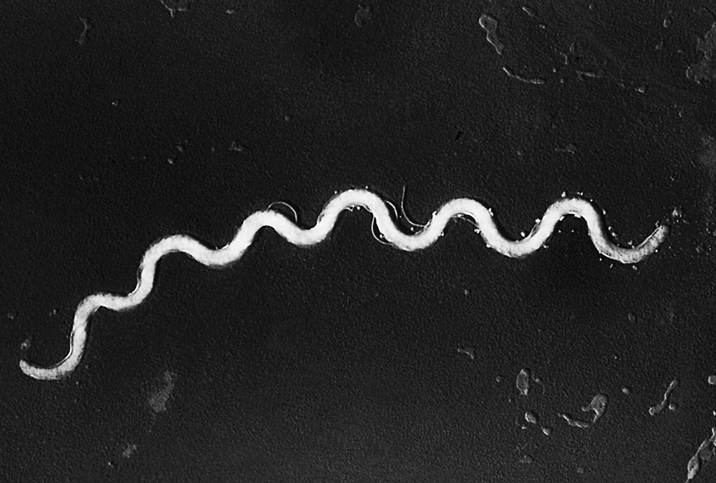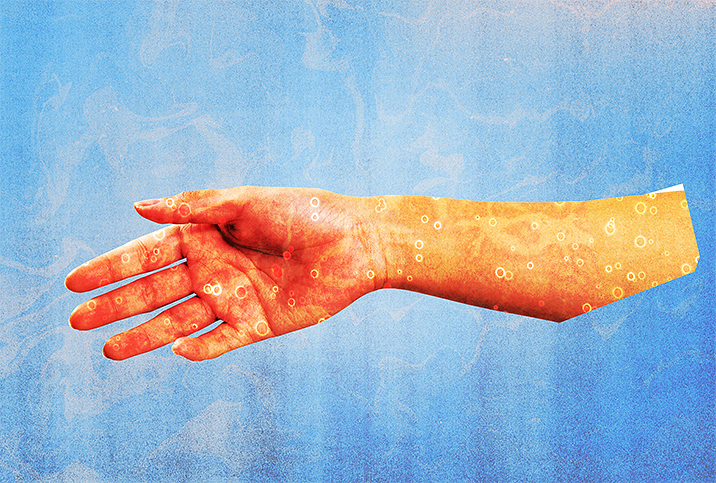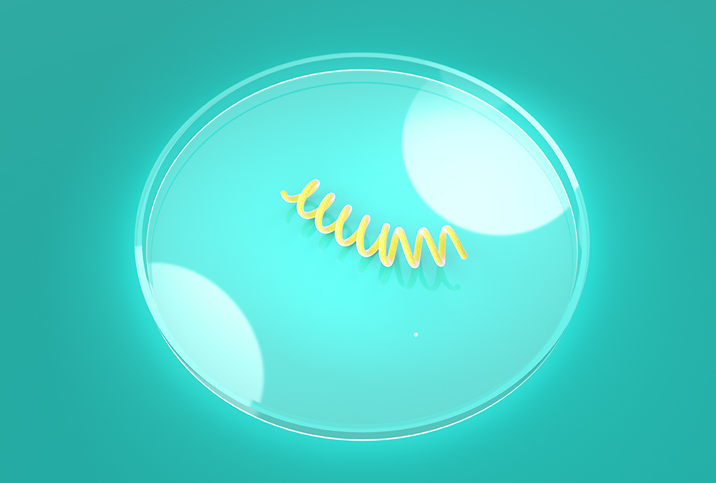Syphilis: Myths & Misconceptions

As with other types of sexually transmitted diseases (STDs), syphilis is surrounded by many myths. Knowing how to distinguish between fact and fiction can only benefit your sexual health.
Syphilis is a bacterial infection often spread by having sexual contact with an infected partner. This includes oral, vaginal and anal intercourse. Detecting and treating syphilis early is the best way to prevent long-lasting complications associated with the infection.
Let’s look at and debunk some of the syphilis myths.
Myth: Syphilis isn’t curable.
Reality: When detected early, syphilis is highly curable. However, if you don’t know you have syphilis and it’s left untreated, permanent complications may occur. Examples include damage to the brain, nerves, eyes, blood vessels, heart, bones, joints or liver. Syphilis-infected pregnant women who don’t get treatment can transmit the disease to their unborn baby and risk other complications, such as birth defects, premature birth or stillborn birth.
Myth: Syphilis is easy to spot.
Reality: The symptoms of early-stage syphilis are subtle and often go unnoticed. The first sign of syphilis is a sore in the area where the syphilis bacteria entered the body. The sore might show up about three weeks after transmission and can appear on your vagina, penis, rectum, anus, lips or mouth.
Syphilis is different in some ways from other STDs in its presentation and the course of the disease. For example, the “painless” sores can clear up even though the patient still has syphilis, which can be misleading. You might also experience lymph-node swelling and a non-itchy skin rash on your trunk, hands or feet. Wart-like sores, muscle aches, fever, hair loss or a sore throat can also occur.
Syphilis also has multiple distinct stages. Symptoms might disappear for a period of several years while syphilis enters a dormant stage—though you’re still infected with syphilis, and the disease will reappear in much more dangerous forms in later stages.
If you believe you’re at risk of contracting syphilis, get tested even if you don’t have obvious symptoms. Also, inform any sexual partners and advise them to get tested and treated.
Myth: Syphilis isn’t dangerous.
Reality: The symptoms of early-stage syphilis are mild and may be missed or ignored since the sores, for example, can resolve on their own. Other early signs of syphilis will also clear over time. The problem is that syphilis doesn’t go away or cure itself: It lies dormant for years, sometimes decades.
Early detection is important as the danger of syphilis actually gets worse over time. Untreated, syphilis in its final stage can cause severe and even life-threatening complications, including major damage to your brain, heart and other organs. It’s also very important to get tested regularly, especially if you’re in nonmonogamous relationships.
Myth: Once I’ve been treated, I can’t get syphilis again.
Reality: You can contract syphilis again after getting treated for it. The primary treatment is antibiotics, but depending on the stage of the disease and its progression, other treatments may be necessary, which you will have to discuss with your doctor. You should avoid engaging in sexual intercourse until you complete treatment, and make sure your partner gets treated, too.
To avoid contracting syphilis again, practice safe sexual intercourse and undergo STD testing periodically. Build these actions into your routine as part of a lifestyle choice to ensure the best outcome for you and your partner.
If you suspect you may have syphilis, see your doctor as soon as you can to get a simple blood test, which will detect the presence of antibodies to syphilis-causing bacteria. Antibodies are part of your body’s detection and defense system, and they get activated to combat the bacteria.
Patients in advanced stages, in which syphilis has progressed to the nervous system, will require other means of diagnosis and treatment. A doctor may recommend a spinal tap to evaluate the cerebrospinal fluid, which is the fluid bathing the brain and spinal cord.
Myth: Treatment can cure all syphilis complications.
Reality: Treatment with antibiotics can cure syphilis if the disease is diagnosed in its early stages. If not diagnosed early, the progression of the disease to higher stages can lead to damage to vital structures, including nerves, the brain and other organs, with lasting symptoms, as much as 10-30 years after the original infection.
Myth: I can’t get syphilis if I use condoms.
Reality: Using condoms and dental dams can reduce your risk of contracting syphilis and other STDs, but condoms aren’t 100 percent effective for disease prevention, and people often use them incorrectly. However, a combination of regular testing, condom use, and close monitoring of symptoms, including self-exams, can go a long way toward prevention.
To lower your risk of contracting syphilis, abstinence is the definitive protection. However, if that’s not realistic, consider a mutually monogamous partnership and regular testing. Being open and honest with your partner(s) and monitoring for any symptoms you or your partner(s) experience should be part of your daily health routine. Additionally, avoid sex with partners who have visible oral, anal or genital sores.
If you suspect you have syphilis or another STD, get tested right away and treated as needed to prevent permanent complications. When detected and treated early, syphilis is curable.


















